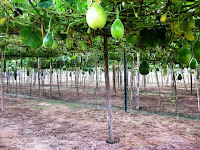It isn’t just the vast green plains of Bangladesh that hold such a visual appeal reminiscent of the rolling downlands of Southern England, with a great deal of water added, or perhaps the endless acres of US cornbelt. It is as much the rural communities that are a great part of the real appeal of the country to the tourist.
Like so many countries whose society is traditionally based outside the urban sprawls, Bangladesh has two great traditions… survival, and hospitality. And both those traditions flourish right up to today.
The tradition of hospitality holds that, if a guest is allowed to leave a house unrefreshed, then the house and householders should be ready to suffer ill fortune. But the very real welcome offered to complete strangers does not seem aimed at avoiding such a fate.
Leave any main road, and halt in any small community, or even any small rural family ‘compound’, and the children immediately, if a little shyly, greet with welcoming smiles. Then the menfolk who are present extend the hand of welcome. Where womenfolk are visible, they smile shyly, and assist in organizing the refreshments.
 There is no question that, beyond the rivers, lakes, hills, forests, beaches, palaces and historic religious places, it is probably the people of the countryside, and their constant efforts to survive and grow that are the most appealing attraction of the country.
There is no question that, beyond the rivers, lakes, hills, forests, beaches, palaces and historic religious places, it is probably the people of the countryside, and their constant efforts to survive and grow that are the most appealing attraction of the country.Family life may have its burdens, but they are seldom apparent to the visitor.
So many urban refugees from this rural idyll may complain about the mandatory visits to ‘home’. Perhaps the younger Gulshanis no longer regard the woven bamboo and thatched roofs as holding any appeal, and far less status, but to many of us, it isn’t just a romantic notion; even those of us who dwell in villages in other countries find appeal in the strength and resiliance of these welcoming people and places. Indeed, the retirement dream of so many from the developed world is the thatched cottage, with slippers by the fire!
Beyond that hospitality, however, lies the real work of development and self improvement without the resort to migration to the cities.
It is, of course, such programmes as those of BRAC and Grameen that are often the backbone or the inspiration of such work, and the constant innovation of the Rural Development Academies such as that at Bogra that support, inspire and innovate in, particularly, productivity.
But across the country are countless examples of how the human spirit rises against the burdens that nature and society sometimes impose.
Who could imagine, for example, right on the edge of the small bustling town of Cox’s Bazar there would be found the epicenter of an entirely self sufficient fountain of rural innovation.
A secret garden, complete with experimental grafting… one mango tree with 52 varieties of mango!, for example, one of the first intensive poultry farms in the country, a small dairy, herb gardens, seed beds, and the crowing glory of an entirely odour free biogas plant used for generating electricity and producing organic fertilizer.
Or the village in Sylhet where the people have formed a cooperative to sink a deep tubewell to support efficient piped irrigation that can improve their agricultural productivity by 30%.
The foods are freshly baked over fires, the meat local and organic, the fish local and exotic, the houses simple, the compounds echoing with the absent voices of family spread across the globe.
In much the same way travelers in Europe have come to recognize Bed and Breakfast home stays as the most comfortable hospitality for enjoying the tranquility of rural life, it is such accommodation in Bangladesh which is often the most rewarding… if sometimes a little basic!
Even as a wayside halt, such dwellings can provide refreshment even plainer, but even more tasty than the plentiful and usually excellent roadside tea houses with their own remarkable array of freshly made pastries. Forget Danish! Sylheti are to kill for!!
But little can compare with fresh picked bananas and coconut water from trees the youths of a family compound have readily climbed to cut.
Like it says in all the books, real tourists head into the remote corners to sample the best, ensuring their visits leave nothing but something useful behind, and take nothing but something replaceable away. For my part, I think that, despite the length of the growing list, I can vividly and happily recall every piece of hospitality given me in the Bangladesh countryside over the past decade or so.




you suck
ReplyDeletelol we are learning about this BANGLADESH
Delete